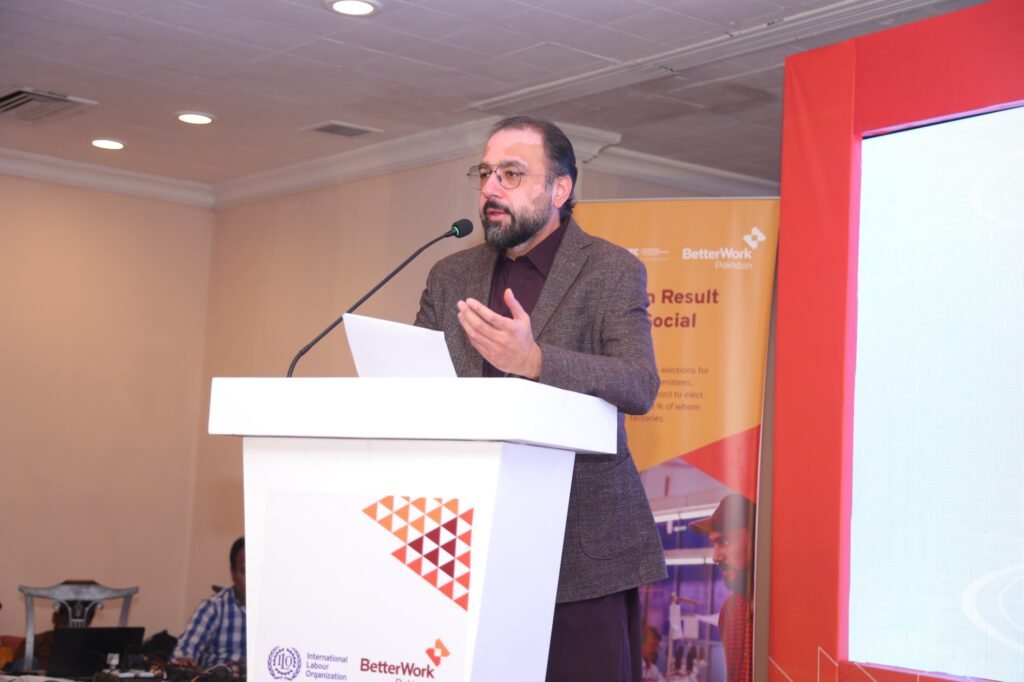
Forum aimed to deepen collaboration with national partners and collectively shape a roadmap for Better Work Pakistan’s next phase (2026–2030), positioning the country as a competitive and responsible garment and textile exporter.
LAHORE – Promoting responsible and competitive growth in Pakistan’s garment and textile sector requires stronger social dialogue, sustainable compliance and collaboration. Participants at the two-day Better Work Pakistan Business Forum, organized by the International Labour Organization’s (ILO) Better Work programme, emphasized these priorities as essential to driving progress and resilience across the industry.
The Forum underscored the value of data and evidence in guiding future action. Better use of programme data can help refine labour regulations, inform sectoral strategies, and create a stronger enabling environment for decent work. Stakeholders agreed that by leveraging information and strengthening factory systems, improvements in compliance and competitiveness can become self-sustaining over time.
The Forum brought together government representatives, employers’ and workers’ organizations, brands and participating factories to take stock of progress and agree on priorities for the next phase of Better Work Pakistan. High-level panels, technical workshops and factory case studies helped translate dialogue into agreed priorities to strengthen compliance and competitiveness across the garment and textile sector.
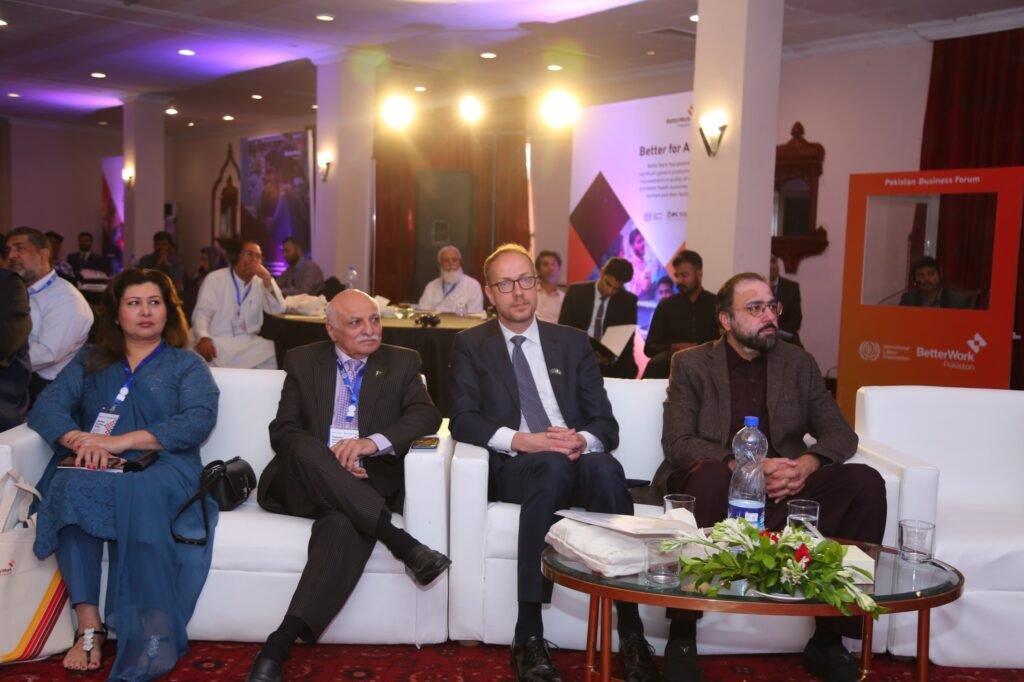
The event provided a constructive platform for exchange among social partners and industry stakeholders. Discussions reflected a strong sense of ownership and appreciation of the programme’s achievements thus far, with partners encouraging Better Work Pakistan to continue expanding its reach and efficiency so that more workplaces can benefit from its services.
Geir Tonstol, Country Director of ILO Pakistan said “Pakistan’s textile industry has immense potential. Promoting decent work in Pakistan’s garment and textile industry isn’t just about compliance — it’s about building a future where responsible business conduct, fair labour practices & competitiveness move forward together”.
Chaudhry Salik Hussain, Federal Minister for Overseas Pakistanis and Human Resource Development, noted that “In a rapidly changing world of work, programmes like Better Work are vital to ensure progress that is both inclusive and just. Progress without justice is not possible,” he said, reaffirming the Government’s commitment to promoting fairness, dialogue and dignity across industries.
Chaudhry Saad Muhammad, General Secretary, Pakistan United Workers’ Federation highlighted that Better Work Pakistan has proven “not just relevant but essential” — serving as a catalyst for improving compliance, productivity & trust between workers and employers through social dialogue and shared accountability.
Malik Tahir Javid, President, Employers Federation of Pakistan commended the programme for making Pakistan’s industries more competitive globally. He noted that compliance has become a core business strategy and urged expanding Better Work’s scope to new sectors while strengthening enterprise capacity.
Ivo Spauwen, Programme Manager, Better Work Pakistan, highlighted the importance of developing smart partnerships — particularly in areas such as environmental sustainability, resource efficiency and worker well-being — to promote safer, more productive and resilient factories.
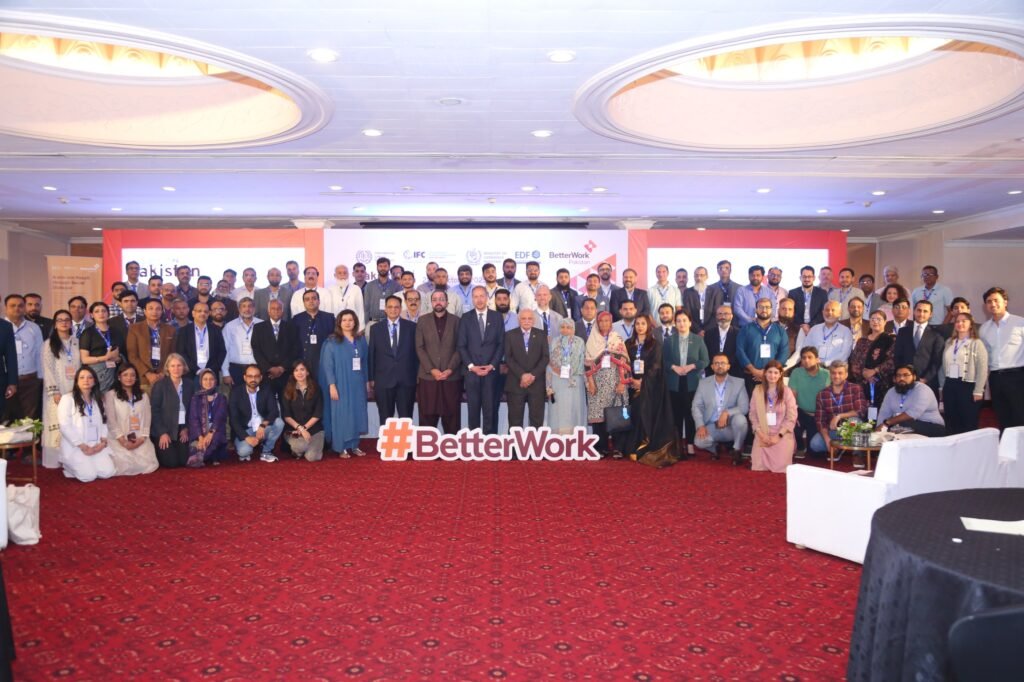
Since its start, Better Work Pakistan (BWP) — a joint initiative of the ILO and International Finance Corporation — has engaged 121 factories, delivering over 180 assessments, 1,200 advisory visits and 500 tailored trainings to more than 6,000 participants, supporting enterprises to strengthen compliance systems and improve safety and productivity. Evidence from the global programme shows sustained reductions in non-compliance over multiple cycles, with average improvements of 27% in other Asian countries where Better Work has been active for an extended period of time, across key areas such as occupational safety and health, human resources, and freedom of association.
Sohail Majeed is a Special Correspondent at The Diplomatic Insight. He has twelve plus years of experience in journalism & reporting. He covers International Affairs, Diplomacy, UN, Sports, Climate Change, Economy, Technology, and Health.


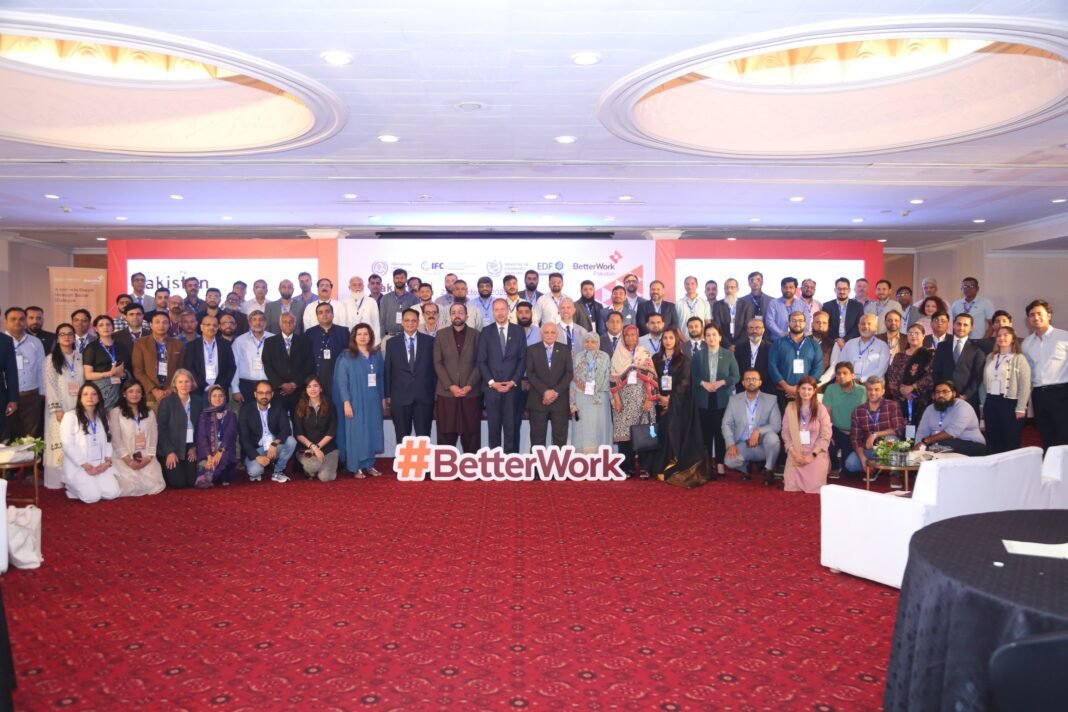

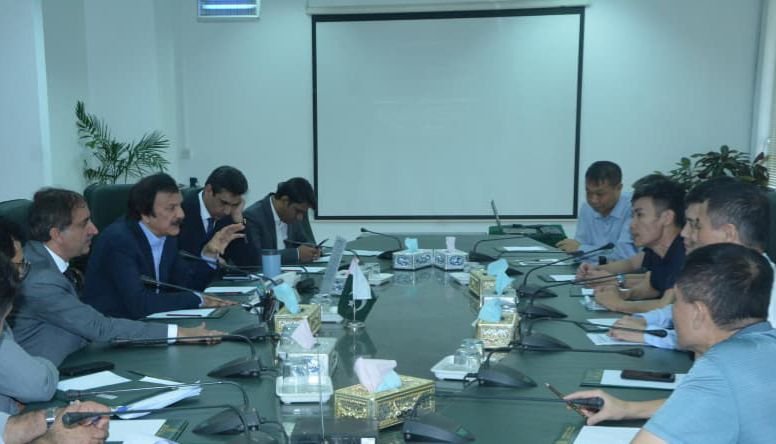
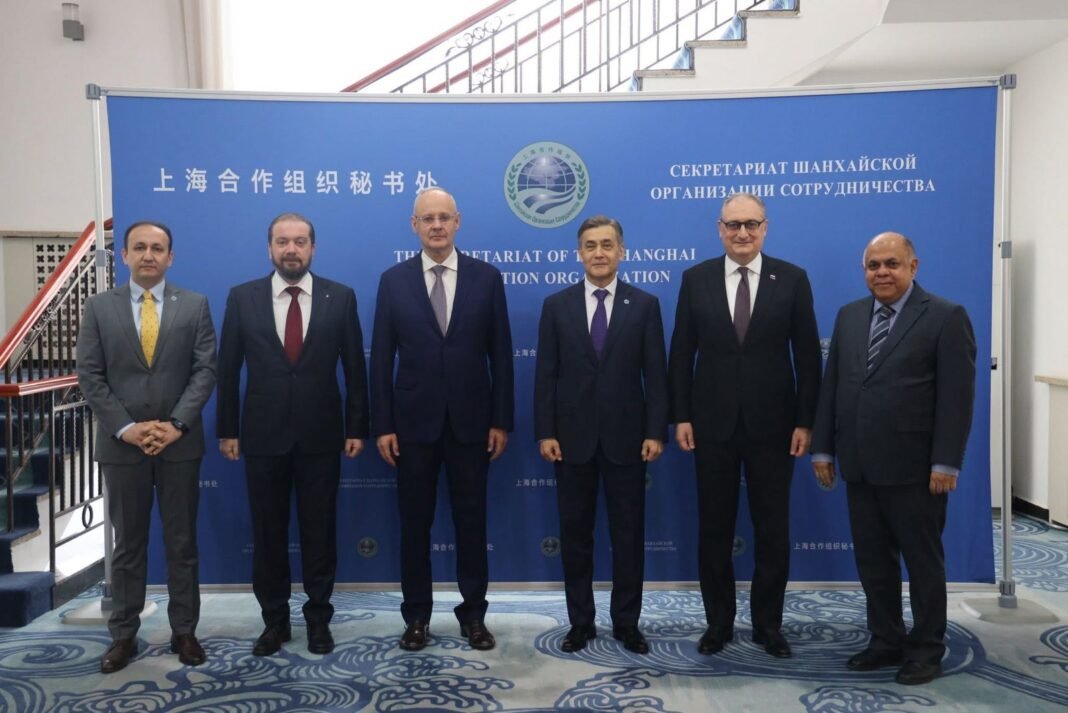
![logo-1[1]](https://globalnewspakistan.com/wp-content/uploads/2025/01/logo-11-e1737618310315-300x187.png)